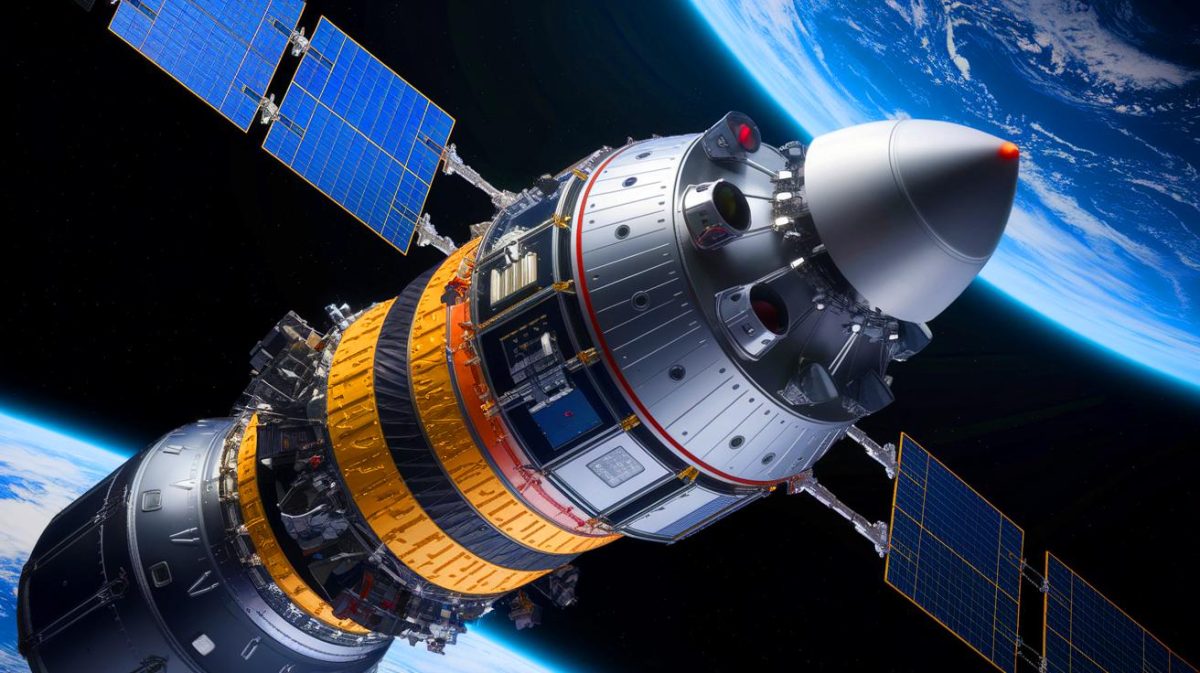| IN A NUTSHELL |
|
In the vast expanse of space, where geopolitical tensions mirror those on Earth, Russia’s Cosmos 2553 satellite has become a focal point of concern. Launched just before the invasion of Ukraine in 2022, this satellite is now reportedly malfunctioning, causing ripples of anxiety across the globe. The satellite, suspected to be part of Moscow’s military space ambitions, is showing signs of instability, raising questions about the future of space security and the potential militarization of the final frontier. As nations race to establish dominance in orbit, Cosmos 2553’s tumbling trajectory could signify a broader struggle for control and influence among the world’s superpowers.
The Satellite’s Role in Russia’s Military Space Efforts
The deployment of Cosmos 2553 marked a significant step in Russia’s efforts to expand its military capabilities into space. Positioned in a high-radiation orbit approximately 1,243 miles above Earth, the satellite was thought to be a part of a broader strategy to test the resilience of Russian space technologies in harsh environments. According to U.S. analysts, Cosmos 2553 was believed to play a dual role in intelligence gathering and radiation testing, crucial for developing technologies targeting satellite constellations like SpaceX’s Starlink. This network is heavily utilized by Ukrainian forces, highlighting the satellite’s strategic importance in the ongoing conflict.
However, recent observations have indicated that Cosmos 2553 may not be functioning as intended. In November, anomalies were detected in its behavior by LeoLabs, using advanced Doppler radar technology. The following month, their assessment escalated to a “high confidence” level that the satellite was tumbling. This instability has led to questions about the effectiveness of Russia’s military ambitions in space and whether the satellite can still fulfill its intended mission.
Signs of Potential Recovery Amidst Uncertainty
Despite initial reports of malfunction, recent data suggests that Cosmos 2553 might be stabilizing. In May 2024, Slingshot Aerospace detected unusual activity, with the satellite’s brightness becoming variable—a potential indication of tumbling. However, further observations indicated possible stabilization, leaving analysts to speculate about the satellite’s current state. Belinda Marchand, Chief Science Officer at Slingshot, noted these changes, although the extent of any damage remains uncertain.
This potential recovery could be a testament to the resilience of Russian space technology, yet it also highlights the uncertainties inherent in operating sophisticated machinery in the harsh conditions of space. The incident underscores the challenges faced by nations as they seek to assert dominance beyond Earth’s atmosphere, where technical failures can have far-reaching implications for national security.
Impact on International Space Relations
The tumbling of Cosmos 2553 is not just a technical issue; it represents a broader challenge in the realm of international space relations. As the number of satellites increases, distinguishing between civilian and military assets becomes increasingly complex. This complexity raises the specter of misinterpretation and potential conflict, particularly among major space-faring nations like the U.S., Russia, and China.
The U.S. Space Command has expressed concern over Russia’s activities, warning of the risks associated with Cosmos 2553’s inconsistencies. The satellite’s troubled status highlights the fragile balance between national defense and global stability, as nations vie for strategic advantage in orbit. The potential for escalation underlines the need for clear communication and cooperative frameworks to manage the growing competition in space.
Looking Ahead: The Future of Space Security
The situation with Cosmos 2553 raises important questions about the future of space security and the role of military assets in orbit. As nations continue to develop and deploy advanced technologies, the potential for conflict in space looms large. This reality necessitates a reevaluation of international agreements and a commitment to ensuring that space remains a domain of peaceful exploration and cooperation.
With tensions high and the stakes even higher, the situation demands a strategic approach to space diplomacy. How will the international community navigate the challenges posed by militarization in orbit, and what measures can be implemented to prevent conflict and ensure stability? The answers to these questions will shape the future of space exploration and the global order in the years to come.
Did you like it? 4.4/5 (22)









Isn’t it ironic that something as advanced as a satellite can still “crumble”? 🤔
Thank you for this insightful article! It’s eye-opening to see how space and geopolitics intertwine.
How did they detect the satellite’s tumbling? Is it visible from Earth?
Another crisis in space? What’s next, aliens? 👽
Interesting read, but I’m curious about the actual implications of a malfunctioning satellite. Can it really cause a catastrophe?